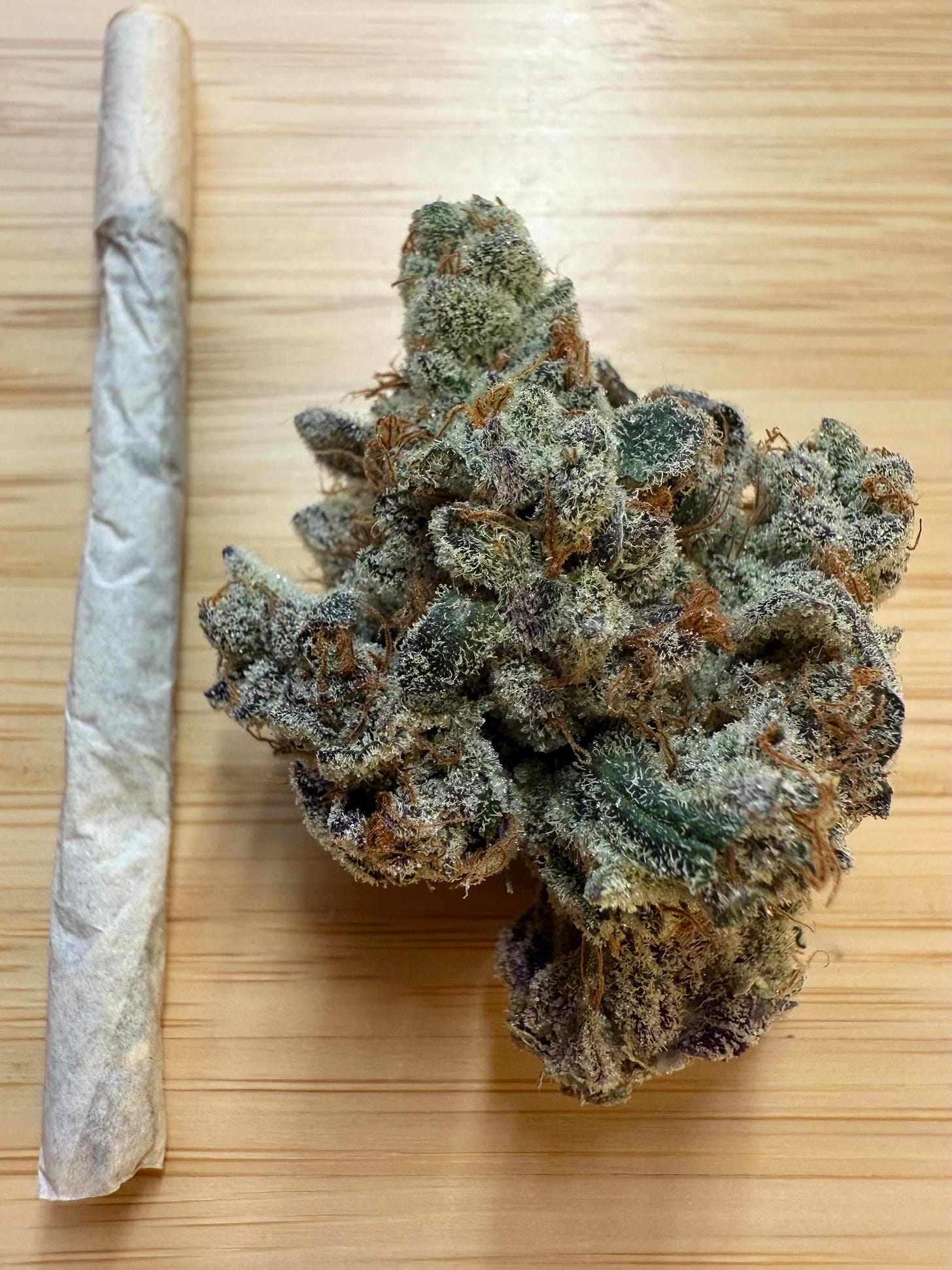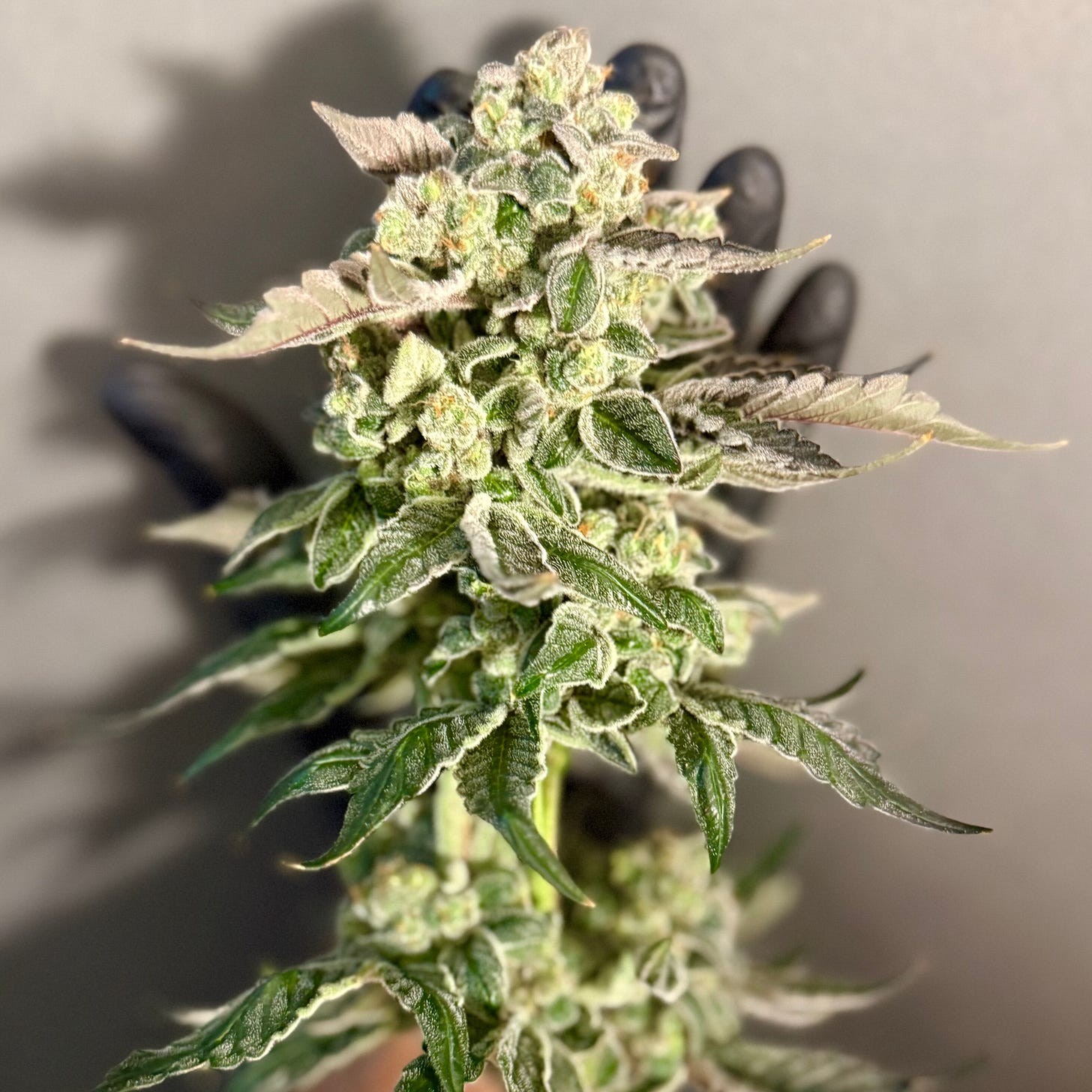When Cannabis is a Lifeline
For many patients with chronic illness, daily use isn't a choice - it's a necessity.
I’ve heard talk recently about the importance of taking breaks from cannabis and using less of it to achieve optimal results.
For example, I saw a post recently about the positive effects of taking tolerance breaks from using cannabis. Another talked about the benefits of avoiding the “wake and bake" (using cannabis first thing in the morning). And generally, I support these opinions. For someone using cannabis recreationally, taking breaks and using less to do more can be beneficial. But I think it’s also important to consider the patient with chronic conditions in this conversation.
“It's the difference between being bedridden and being able to make breakfast for their kids.”
As someone who has a chronic pain condition and who has helped others with similar struggles, I know that cannabis can be a lifeline. For these patients, cannabis is a medication that has to be taken every day to keep the symptoms at bay. In my case, dealing with degenerative disc disease, some mornings I have to smoke two joints just to get the pain levels manageable.
There are people who have to take hundreds of milligrams of cannabis daily to deal with pain. For these people, the alternatives are grim: opiates, experimental pain medications, surgery, or doing nothing and just suffering. Often, these people can’t take tolerance breaks. Cannabis is their lifeline.
For them, it’s not about getting high; it's about achieving a baseline of function. It's the difference between being bedridden and being able to make breakfast for their kids.
So how can we include patients in these discussions?
Instead of making broad statements, we can use language that acknowledges different types of users from the start. Reframe the conversation to include those for whom cannabis is a medical necessity. For example, instead of saying, "Taking a tolerance break is the best way to reset your system," you could say, "For those using cannabis recreationally, a tolerance break can be a great way to reset your system."
This post is not meant to fault anyone; we're all trying to help people with this plant. But sometimes we get caught up in the “recreational” aspect of cannabis and forget about the patients. Remember, medical cannabis patients are the foundation of our current industry. They led the fight for compassionate use and paved the way to legalization. Let’s make sure they stay a vital part of the conversation.





This article is well appreciated. Though I do enjoy cannabis recreationally, it has been mostly to assist with my physical and mental health. My autoimmune illness and crippling anxiety and overthinking would have consumed me if cannabis did not enter my life.
This is a great and timely article. I totally agree from my own experience and from the perspective of supporting evidence around the world.
I use cannabis and enjoy it, but I have a prescription because I have a genuine medical need for it.
I used to wake and bake - mainly when I was unemployed, but not exclusively. I was riddled with anxiety, and so arguably I was medicating rather than just using recreationally, but I had a choice, though I left the house less frequently when I hadn't used cannabis.
Having kids made my usage much more complicated as I had to choose between driving completely sober, which is my preference, or reducing my anxiety. In the UK, if you are swabbed and there is ANY THC in your system AT ALL, you are prosecuted and banned for a year. It's a ridiculous show of strength in zero tolerance. Eventually, going without, as I aged, the anxiety dropped off, thankfully, and I was able to reduce my usage during the day, which worked for me. It doesn't for others.
When I dropped tobacco, the imperative to use cannabis throughout the day was reduced further, though I still did when my anxiety peaked.
Now, I use it almost exclusively at night to calm my neurological issues and enable easier sleep, though I also enjoy it and look forward to that time on two levels.
That said, I still have friends who use recreationally during the day and others who use medically during the day and for most, there is some overlap.
If my symptoms worsen, then I will have no qualms about usage during the daytime and I would give short shrift to anyone who'd take me, or other users to task on that front.
Thanks for stating the case, that can never be made clear enough for agents of opposition who have no shared context to help them understand the situation.
Eventually, shared experience and proximity to people who use in various ways should propagate better understanding, tolerance and acceptance.
There should be zero stigma towards people using during the day, where their needs or lifestyle permit.
We're not talking about people heading to void like users of some substances. It's an augmentation. I think this is something that non-users fail to understand as they equate cannabis usage with alcohol usage which is not a great comparison.